It’s not every day that people get the opportunity to spend time with living legends, but we did and loved every minute with two revered individuals.
For the second year, the Department of Sport, Arts and Culture (DSAC) tasked Flow Communications with producing new additions to its series of books on “living human treasures”.
The small hardcover books feature two South African icons – ingenious Xhosa musician Madosini Latozi Mpahleni and Ouma Katrina Esau, one of the last fluent speakers of the ancient San language N|uu.
Flow worked on the project from start to finish – conducting research, and setting up interviews with both legends, their families, friends and professionals who have worked closely with them over the years.
“As a project manager, I have been privileged to work on the DSAC living human treasures books for the second year in a row,” says Flow’s Ros Caboz, who oversaw the massive project on behalf of Flow.
“In 2018/19, we produced two books that featured artists Esther Mahlangu, of Mpumalanga, and Noria Mabasa, of Limpopo, and in 2019/20, we produced a further two books featuring artists Ouma Katrina Esau, who lives in Upington, and Madosini Mpahleni, who lives in Cape Town but comes from Mthatha.”
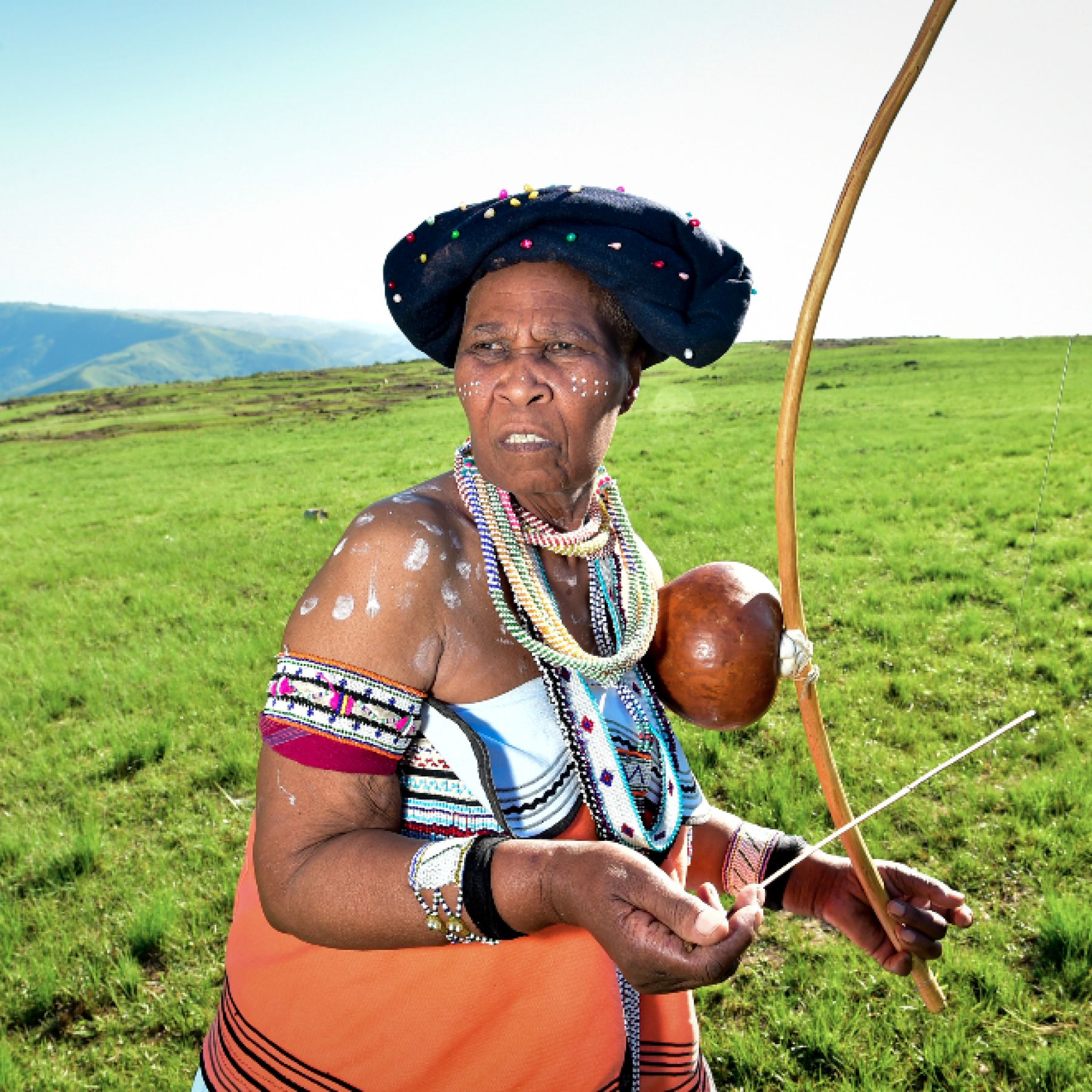
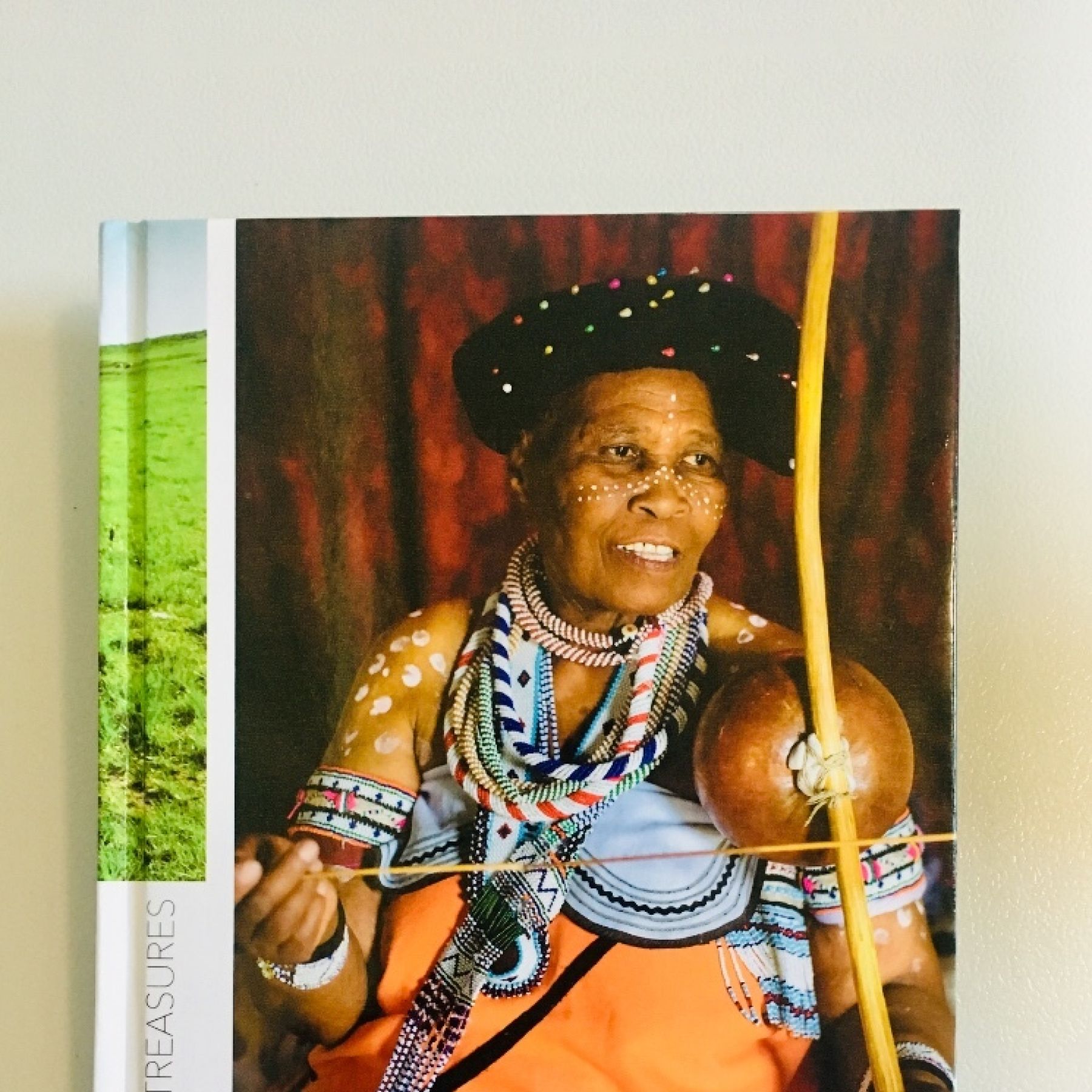
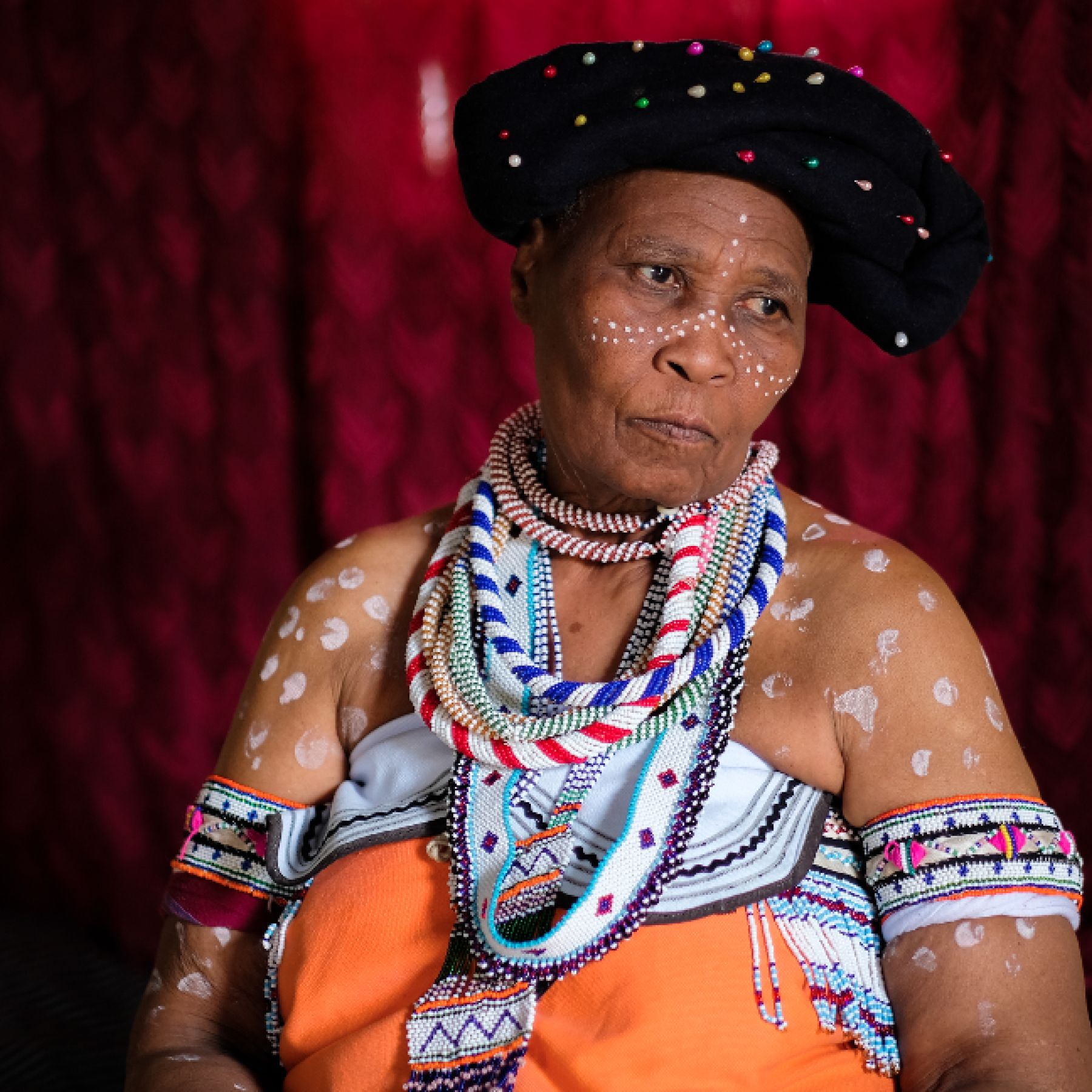
Madosini is a world-renowned musician, stage performer, storyteller and icon of the extraordinary Xhosa cultural tradition. Her unique and distinctive sounds playing the uhadi (music bow), umrhubhe (mouth bow) and isitolotolo (Jew’s harp) have kept traditional oral Xhosa music alive. The veteran also makes her own instruments (umrhubhe mouth-resonated and uhadi calabash-resonated bows).
“Meeting, interviewing and spending many hours over several days with Mama Madosini at her home in Langa for the book was inspirational, humbling, eye-opening, enriching and emotionally taxing – all at the same time. After months of hard work, it was an incredible highlight to finally hold the book, Madosini Mpahleni: Sounds of the Land, in my hands,” says Flow senior writer and subeditor Libby Peacock.
“Pakamani [Nombila, Flow content producer] and I made a great team, and without his incredible translating work, I would not have been able to delve so deep into this extraordinary veteran musician’s life journey – by no means an easy one – and remarkable psyche.”
Despite many obstacles over the years, Madosini has performed and collaborated widely and her ongoing aim is to transfer her wealth of knowledge to the younger generation. She was the 2020 featured artist for this year’s virtual National Arts Festival.
She has guest-lectured at the University of Cape Town’s South African College of Music and at local schools in the townships of the Western Cape and, when she gets the chance, runs workshops where she passes down her skills in making and playing the uhadi and umrhubhe.
“It was such an honour and privilege to work on such an amazing project. My dream has always been to write, and through this project, I got to experience the creative process first-hand – and now there’s a book to show for it,” says Pakamani, who worked as interviewer, translator and photoshoot coordinator on the Madosini book.
“Mama Madosini was a pleasure to work with, she welcomed us to her home with open arms and a smile on her face, and was always ready to impart her wealth of wisdom to us,” he adds.
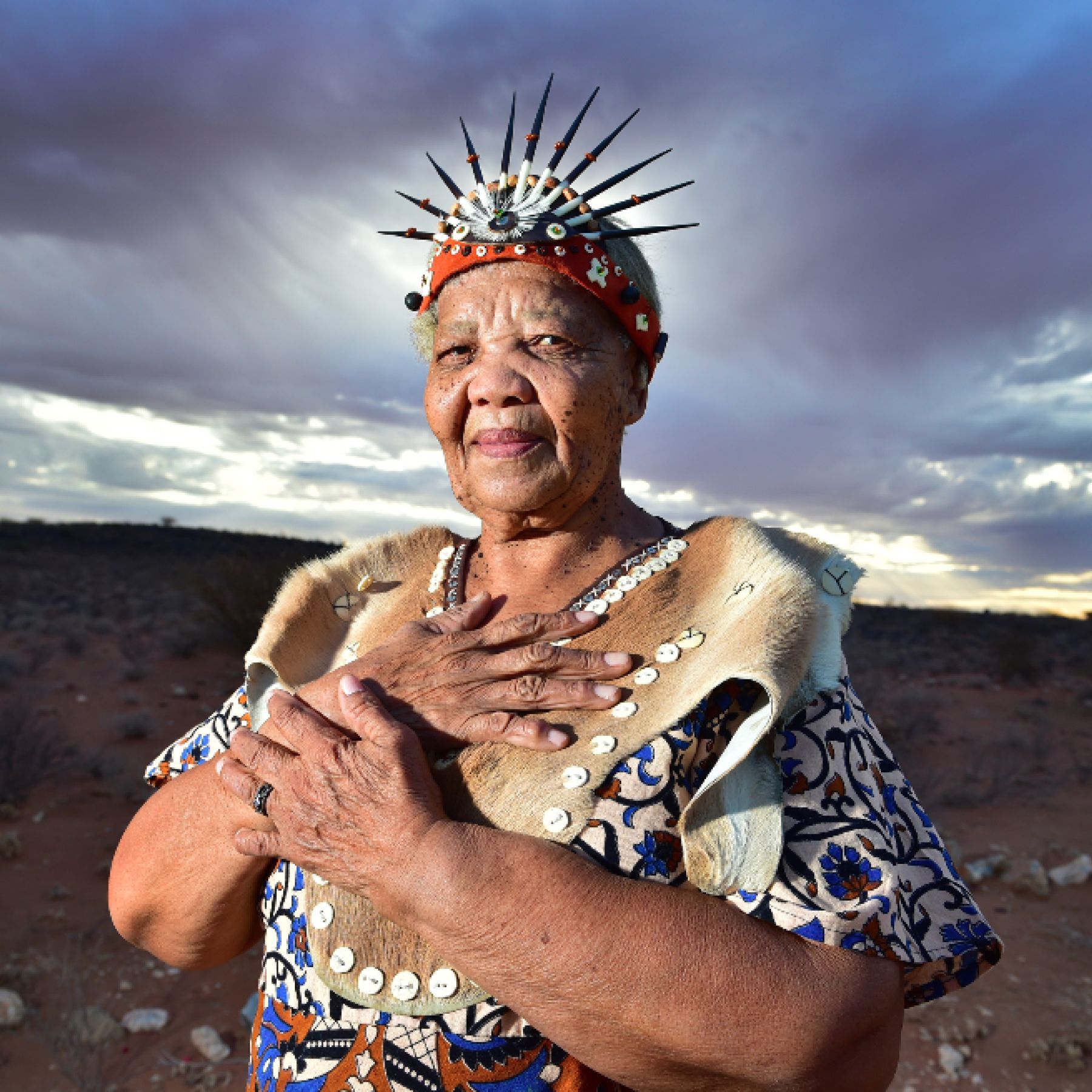
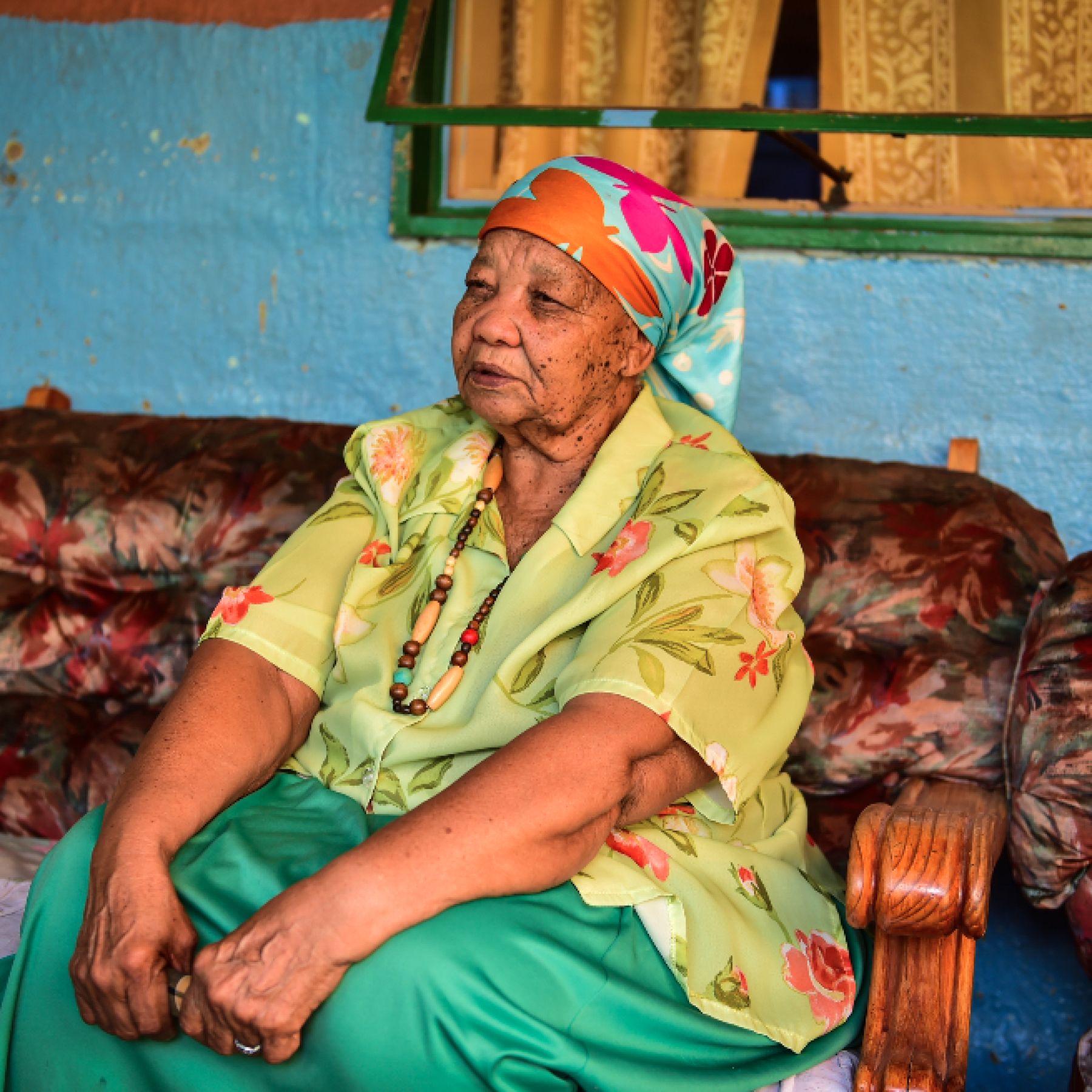
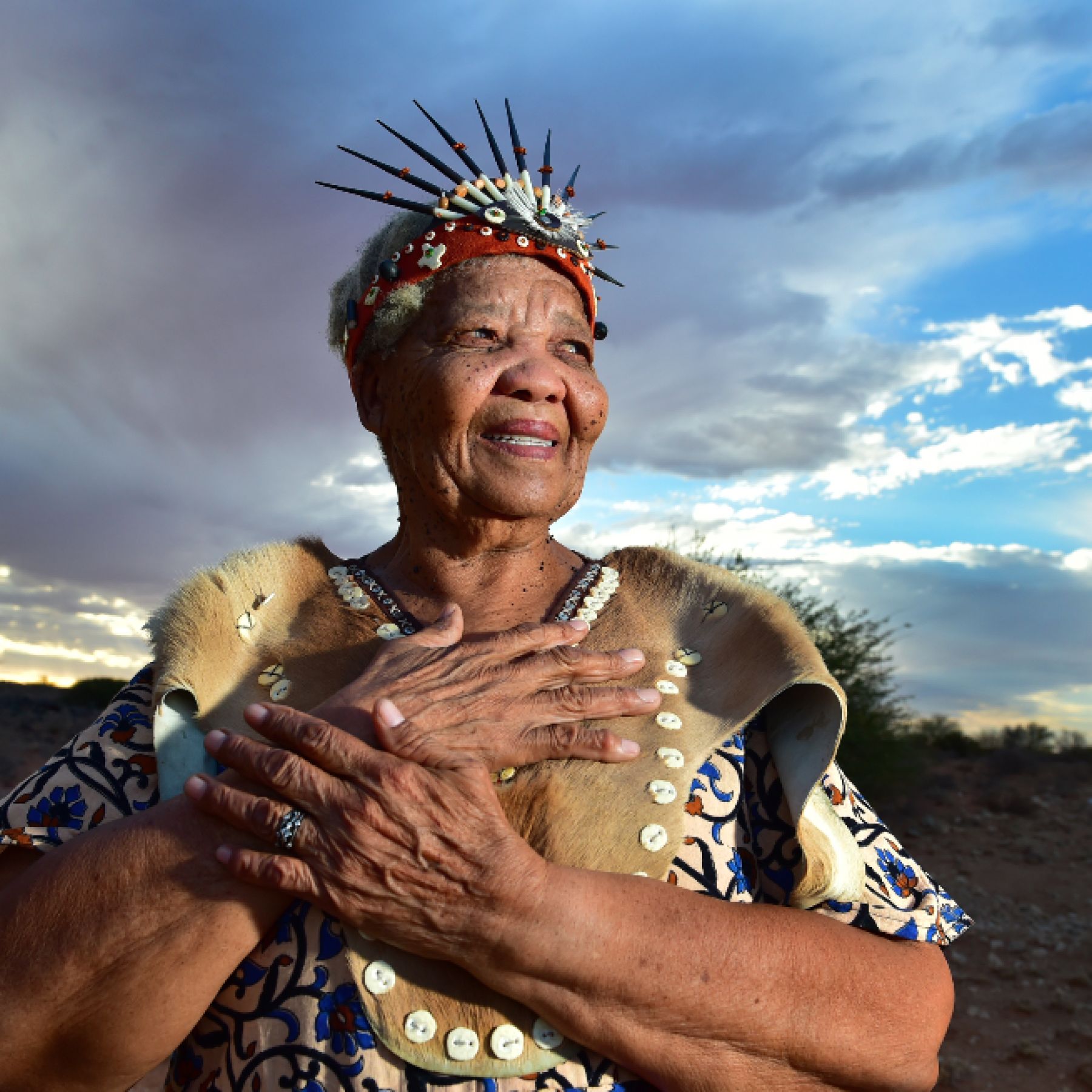
Ouma Katrina Esau hails from Upington in the Northern Cape on the seam of the Kalahari Desert. She is the recipient of the 2014 National Order of the Baobab in Silver for her work in heritage preservation. She is one of the last fluent speakers of the ancient San language N|uu. The United Nations categorises Nluu as being critically endangered and facing extinction. Ouma Katrina has dedicated her life to ensuring that N|uu, considered to be the original language of southern Africa, outlives her.
“It was a unique privilege for me to meet Ouma Katrina Esau, to hear her speak N|uu and be able to tell her story. What an amazing South African she is. I am at once humbled by the opportunity, and appalled to be recording what is effectively the tail end of a centuries-long genocide,” says Flow senior writer and editor Willem Steenkamp, who wrote the Ouma Katrina book.
“The destruction of South Africa’s San heritage is a terrible stain on our country’s story, and the lacklustre support that Ouma Katrina has had in her decades-long efforts to save her language before it is too late borders on the criminal.”
Ouma Katrina has worked for decades teaching and orally passing down N|uu to young children in her local community in Upington. In recent years, in an effort to save her native language, she has collaborated with academics in order to create a N|uu alphabet and basic rules of grammar for teaching purposes. These academics include Sheena Shah from the School of Oriental and African Studies in London and Matthias Brenzinger of the Centre for African Language Diversity at the University of Cape Town.
Says Ros, “Being part of the continuation of the series for the DSAC’s living human treasures books has been both humbling and rewarding. Our teams spent several days with the artists and their families in their homes, interviewing them and taking photographs. Flow managed the books’ research, writing, design, formatting, typesetting, editing, proofreading and printing.
“This work has been very ably carried out by our excellent and experienced team of writers, editors, photographers and designers, and we are very proud of the work produced for the DSAC.”
